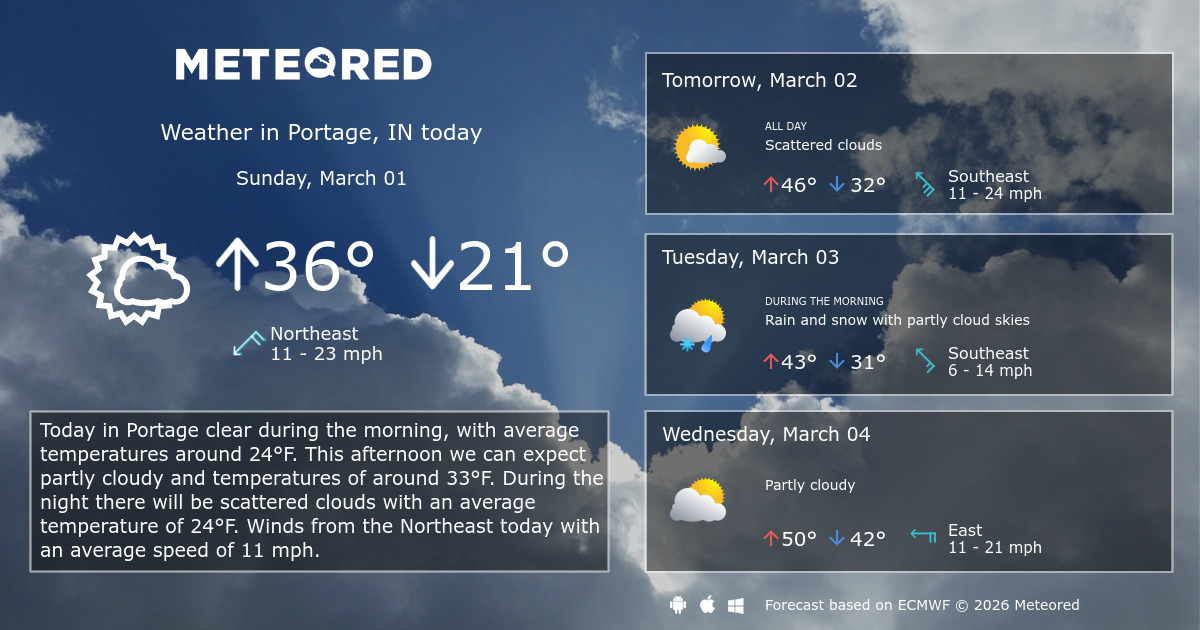Weather Conditions in Portage: Portage Weather

Portage weather – Portage, nestled amidst the breathtaking landscapes of Wisconsin, experiences a humid continental climate, characterized by distinct seasonal variations. Let’s delve into the intricate tapestry of weather patterns that shape the Portage experience.
The skies over Portage are often as unpredictable as a McDonald’s Grimace Shake , changing from azure to tempestuous in a matter of moments. Just as the sweet, grape-flavored beverage can instantly refresh parched throats, a sudden downpour can quench the thirst of parched earth.
But like the shake’s vibrant hue that fades with time, the weather in Portage can be equally fleeting, leaving behind only a memory of its intensity.
Temperatures
Portage’s annual average temperature hovers around 46°F (8°C), with summer highs soaring to a comfortable 79°F (26°C) and winter lows dipping to a chilly 17°F (-8°C). The city enjoys a lengthy summer season, typically spanning from May to September, with ample sunshine and warm temperatures.
The weather in Portage can be unpredictable, with sudden shifts from calm to stormy. Just like the tornado that struck Kalamazoo in 2019, leaving a trail of destruction in its wake. But like the resilient spirit of Portage, the weather here always finds a way to balance itself, bringing back the sunshine after the storm.
Precipitation
Portage receives an average of 33 inches (84 cm) of precipitation annually, distributed fairly evenly throughout the year. Rain is the predominant form of precipitation, with occasional snowfall during the winter months. The city experiences moderate humidity levels, making for generally pleasant conditions.
Portage weather, unpredictable as ever, can turn from tranquil to tempestuous in a matter of moments. One such instance was the infamous Otsego tornado that ravaged the region in 1956. This destructive force left a trail of devastation, a grim reminder of the capricious nature of nature.
Portage weather, despite its unpredictable tendencies, continues to captivate and humble us with its ever-changing tapestry.
Seasonal Variations, Portage weather
Spring (March-May): As winter’s icy grip loosens, temperatures gradually rise, and the landscape bursts into vibrant hues of green. April showers bring forth new life, nourishing the awakening vegetation.
The portage weather is unpredictable, just like the ever-changing currents of e coli lake anna. One moment it’s calm and inviting, the next it’s raging and unforgiving. But even in its most treacherous moments, the portage weather holds a certain allure, a reminder of the untamed wilderness that surrounds us.
Summer (June-August): Portage basks in the warmth of summer, with long, sunny days and balmy nights. Thunderstorms occasionally roll through, providing brief but refreshing respites from the heat.
Autumn (September-November): The changing leaves paint a kaleidoscope of colors across the Portage landscape. Temperatures cool down, and crisp autumn air fills the atmosphere.
Winter (December-February): Snow blankets the city, creating a picturesque winter wonderland. Temperatures drop significantly, and the occasional snowstorm can bring heavy snowfall.
Unique Weather Phenomena
Portage is not known for any particularly unique or notable weather phenomena. However, the city does experience occasional fog, especially during the spring and fall months, when warm, moist air meets cooler temperatures.
Portage weather can be unpredictable, with sudden changes in temperature and wind direction. Recently, a tornado warning was issued for Martin County, highlighting the importance of staying informed about weather conditions. While Portage weather can be unpredictable, it’s crucial to take precautions during severe weather warnings like the martin county tornado warning to ensure safety.
Staying up-to-date with weather forecasts and following safety guidelines can help mitigate risks associated with unpredictable weather conditions like those experienced in Portage.
Impact of Weather on Outdoor Activities

The weather in Portage can have a significant impact on outdoor activities such as hiking, camping, and fishing. It’s important to be aware of the weather forecast before engaging in any outdoor activity, as certain weather conditions can pose safety risks or make the activity less enjoyable.
During the summer months, Portage experiences warm and humid weather, with average temperatures ranging from 15°C to 25°C. However, sudden thunderstorms can occur, especially in the afternoons. These storms can bring heavy rain, lightning, and strong winds, which can make hiking and camping dangerous. It’s important to seek shelter immediately if you’re caught in a thunderstorm.
Hiking
Hiking in Portage can be a great way to enjoy the beautiful scenery, but it’s important to be prepared for the weather. During the summer months, it’s important to wear light, breathable clothing and to bring plenty of water. It’s also a good idea to wear sunscreen and a hat to protect yourself from the sun.
If you’re planning on hiking in the winter, it’s important to dress warmly and to wear layers of clothing. It’s also important to bring a hat, gloves, and scarf to protect yourself from the cold. Be aware of the risk of hypothermia and frostbite, especially if you’re hiking in high winds or at high altitudes.
Camping
Camping in Portage can be a great way to experience the outdoors, but it’s important to be prepared for the weather. During the summer months, it’s important to bring a tent that is waterproof and breathable. It’s also important to bring a sleeping bag that is rated for the expected temperatures.
If you’re planning on camping in the winter, it’s important to bring a tent that is insulated and waterproof. It’s also important to bring a sleeping bag that is rated for the expected temperatures. Be aware of the risk of hypothermia and frostbite, especially if you’re camping in high winds or at high altitudes.
Fishing
Fishing in Portage can be a great way to relax and enjoy the outdoors. However, it’s important to be aware of the weather forecast before heading out. During the summer months, it’s important to wear sunscreen and a hat to protect yourself from the sun. It’s also a good idea to bring plenty of water to stay hydrated.
If you’re planning on fishing in the winter, it’s important to dress warmly and to wear layers of clothing. It’s also important to bring a hat, gloves, and scarf to protect yourself from the cold. Be aware of the risk of hypothermia and frostbite, especially if you’re fishing in high winds or at high altitudes.
Weather Forecasting and Planning
Staying informed about weather conditions is crucial for planning outdoor activities and events in Portage. Fortunately, there are various reliable resources available to help you stay ahead of the weather curve.
Local news stations provide regular weather updates and forecasts. They often have dedicated meteorologists who provide detailed analysis and predictions tailored to the Portage area. These forecasts can be accessed through television broadcasts, websites, and mobile apps.
Weather Apps and Websites
Numerous weather apps and websites offer real-time weather data, forecasts, and alerts. These services often utilize advanced weather models and data sources to provide accurate and up-to-date information. Some popular options include the Weather Channel app, AccuWeather, and the National Weather Service website.
When interpreting weather forecasts, it’s important to pay attention to the predicted temperature, precipitation probability, wind speed, and any potential weather hazards. Consider the impact of these factors on your planned activities and make adjustments as necessary.
Importance of Weather Awareness
Being aware of weather conditions is essential when making travel plans or scheduling outdoor events in Portage. Adverse weather conditions can disrupt transportation, cause delays, and even pose safety risks. By staying informed about the weather forecast, you can make informed decisions and avoid potential inconveniences or hazards.